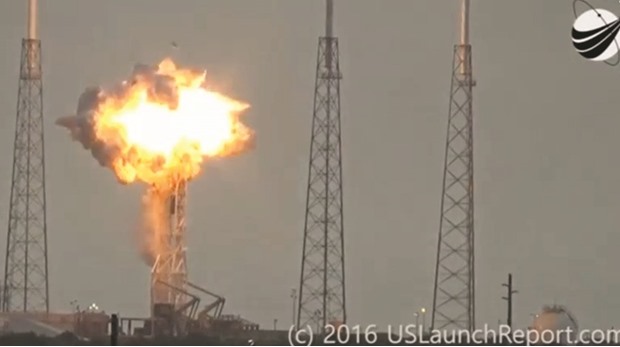A large question mark looms over Israel’s space industry after its prized Amos-6 satellite blew up in last week’s failed SpaceX rocket launch.
Space Communication Ltd, the Israeli company that was to operate the Amos-6, is still picking up the pieces and deciding what to do next. The government could push to build a new satellite and maintain the independence of Israel’s space industry, according to Tal Inbar, head of the space and UAV research centre at the Fisher Institute for Air and Space Strategic Studies, based in Herzliya, Israel.
The setback to Space Com imperils its deal with China’s Beijing Xinwei Group over control of the company, but presents an opportunity for Israel Aerospace Industries Ltd, the state-owned weapons manufacturer that built Amos-6. Prime Minister Benjamin Netanyahu can allot some of the estimated $200mn to pay IAI to build another satellite for Space Com, its sole client for such products.
Keeping the country’s space industry in-house shields it from pro-Palestinian activists who apply political pressure on foreign companies to stop doing business with Israel, Inbar said. Satellites also serve as backup for Israel’s communications infrastructure in the event of war or technical malfunction, he added.
“There’s a synergy in the triangle between Space Com, its biggest client, and its supplier, in that they’re all Israeli companies,” Inbar said in an interview. “They understand each other and would be responsive to each other, so that they could amend issues in the satellite, if need be, in no time.”
The September 1 accident was the biggest blow to the country’s space programme since the death of astronaut Col Ilan Ramon in the Space Shuttle Columbia disaster in 2003. Government ministers and industry heads were due to hold an emergency meeting yesterday afternoon in Tel Aviv to discuss the loss of the satellite.
Space Com said in a statement yesterday that it’s owed $294mn in compensation after the accident. Space Com said it’s talking to Xinwei about ways to amend the sale accord. Attempts to reach the Chinese company by telephone were unsuccessful.
Space Com chief executive officer David Pollack said on a conference call yesterday that the company is looking for an alternative satellite provider and would be able to launch a new satellite in about two years.
An accord with Facebook to use the Amos-6 to provide Internet connectivity in sub-Saharan Africa has been cancelled, but the company will still be able to meet its financial commitments, he said.
Pollack said Space Com has three immediate options: Buy a satellite already in orbit and re-position it; buy a satellite on the ground; or order a new satellite.
Each avenue has its pitfalls. Purchasing a satellite already in space would be fastest but comes with a shorter lifespan, and an existing satellite other wouldn’t be customised to the needs of Amos-6’s clients, which included the country’s defence ministry, Bezeq Israeli Telecommunication Corp and Yes Satellite Services.
Launching a new satellite would take about 18 months if Space Com ordered one through international firms such as The Boeing Co or Lockheed Martin Corp. It would take IAI about three years to build a new one, “a very long time relative to other industries in the world,” Inbar said.

An explosion on the launch site of a SpaceX Falcon 9 rocket is shown in this still image from video in Cape Canaveral, Florida on September 1. A large question mark looms over Israel’s space industry after its prized Amos-6 satellite blew up in the failed SpaceX rocket launch.
